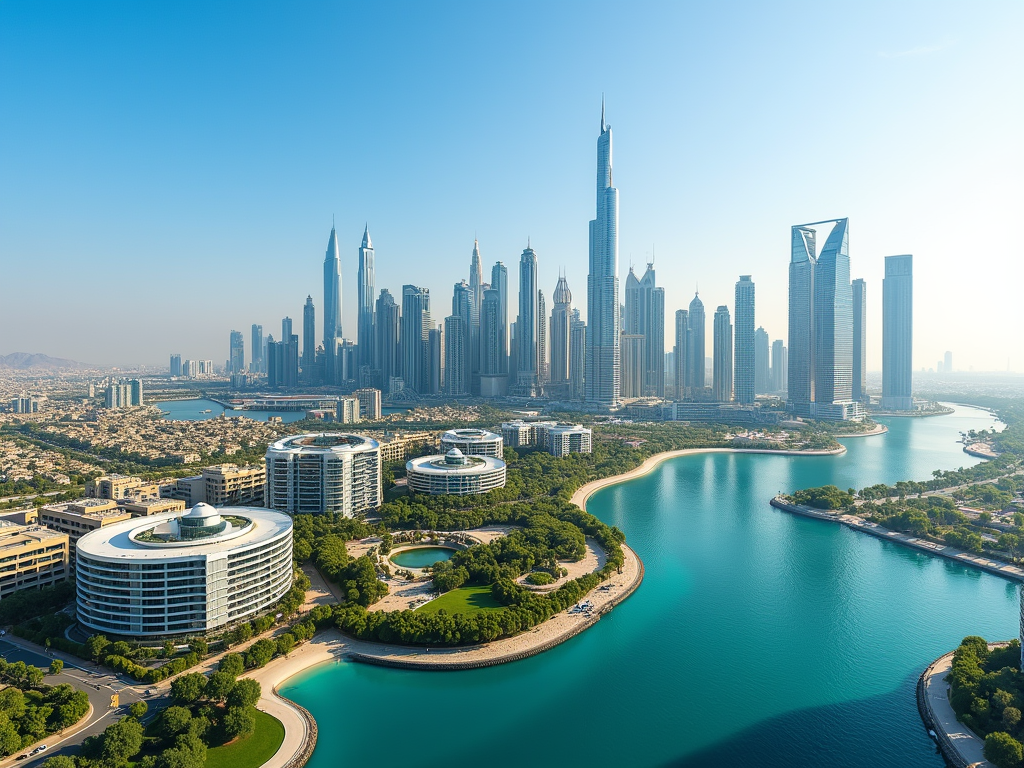Dubai’s real estate sector presents a plethora of lucrative business opportunities for investors, entrepreneurs, and property enthusiasts alike. Known for its stunning skyline, modern infrastructure, and strategic location, Dubai has emerged as a global business hub. The real estate market is particularly vibrant due to a combination of high demand, foreign investment, and government initiatives aimed at fostering growth. This article aims to explore various business opportunities within Dubai’s real estate industry, shedding light on why now is the perfect time to invest.
Understanding the Market Dynamics

Before delving into the opportunities, it’s vital to understand the market dynamics that drive the real estate sector in Dubai. The city has a unique blend of cultural diversity, a robust economy, and a growing population, all of which contribute to the ever-increasing demand for both residential and commercial properties. Key factors influencing the market include:
- Government Policies: The UAE government has implemented policies that encourage foreign investment and ownership.
- Economic Stability: Dubai’s economy is resilient and diversified, further boosting investor confidence.
- Infrastructure Development: Continuous improvement in transportation and amenities enhances property values.
- Tourism Growth: An influx of visitors contributes significantly to demand for short-term rentals.
- Smart City Initiatives: Focusing on tech-driven solutions, these projects are attractive to investors.
Investors looking to capitalize on Dubai’s booming real estate market have various avenues through which they can engage. From residential properties to commercial developments, each category comes with its own set of benefits. Here’s a detailed overview of the types of opportunities that exist:
- Residential Investments: Buying apartments or villas for rental purposes is a favored choice. The burgeoning expatriate community ensures consistent demand.
- Commercial Real Estate: Office spaces, retail outlets, and industrial properties are highly sought after, particularly in areas like Business Bay and DIFC.
- Real Estate Investment Trusts (REITs): These offer a way for investors to participate in the real estate market without owning physical properties, making it accessible to broader audiences.
- Property Management and Consultancy: Offering services in property management or consultancy can be very profitable, considering the influx of new investors.
- Short-Term Rentals: Platforms like Airbnb provide significant returns for those interested in renting properties to tourists.
The Role of Technology in Real Estate

Technology plays a crucial role in shaping the contemporary real estate landscape in Dubai. The rise of PropTech companies is transforming how transactions are carried out, making processes seamless and efficient. Advanced technologies such as virtual reality (VR) and augmented reality (AR) allow potential buyers to view properties without being physically present. Additionally, big data analytics aids investment analysis and property valuation, helping investors make informed decisions. The integration of blockchain technology for transparent transactions is also gaining traction, enhancing trust in real estate dealings.
Investment Risks and Mitigation Strategies
Like any investment, real estate comes with its risks. Knowing these risks and how to mitigate them is essential for any potential investor. Common risks include market volatility, regulatory changes, and fluctuating demand. Here are some strategies to mitigate these risks:
- Diverse Portfolio: Invest in different types of properties to spread risk across various sectors.
- Thorough Research: Stay updated on market trends and government policies to anticipate changes.
- Engage Local Experts: Collaborate with local real estate firms or consultants who understand the market nuances.
- Regular Oversight: Keep a close eye on property performance and market conditions for timely adjustments.
Conclusion
Dubai’s real estate sector is ripe with business opportunities for those willing to explore and invest. With favorable policies, a growing economy, and advancements in technology, the potential for success is significant. However, understanding the market dynamics and effectively managing investment risks are crucial steps to ensure a profitable venture. Whether you are looking to buy, sell, or manage properties, Dubai offers a vibrant market filled with promise.
Frequently Asked Questions
1. What are the main types of properties to invest in Dubai?
The main types include residential properties (villas and apartments), commercial properties (offices and retail spaces), and short-term rental properties.
2. Are there any restrictions for foreign investors in Dubai’s real estate?
While foreign investors can own property in designated areas, some regulations apply. It’s best to consult with local real estate experts for specific guidelines.
3. How does the rental market operate in Dubai?
The rental market is vibrant, with a significant demand for short-term accommodations due to tourism. Long-term rentals are also stable, especially in popular residential areas.
4. What is the average return on investment in Dubai’s real estate?
The average ROI varies but is typically around 6-10% for long-term rentals, depending on the location and type of property.
5. How can technology influence real estate investments?
Technology enhances efficiency through tools for property management, virtual tours, and data analytics for better decision-making, helping investors optimize returns.
